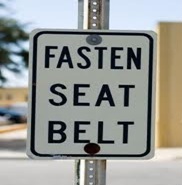We’ve spent the last couple of months climbing a mountain. It’s time to hear from our guide.
This blog was conceived as a diary of sorts – our journey towards becoming an accounting practice of the future. The emotions and feelings, the new opportunities and limitations, any problems we might encounter and where possible the jubilation of triumphing over them – all of these will hopefully weave together over time to form a tapestry of the sights and sounds as they happen. You can probably tell I’d rather be writing for Lonely Planet! Alas, I am but a humble accountant and this is the best (only) outlet I have.
So far you’ve only seen things from my perspective. But in the coming weeks I hope to share the platform with other team members who are along for the ride.

We asked FGS for a file photo of Tim and this is what we got…maybe the lighting isn’t as good in our offices?
This time around though we’re privileged to transcend the plebeian ramblings of the pilgrims and hear directly from our guide and mentor, Tim Callcott from FGS. I thought it would be great to get some insight from the other side, and see how he thinks we’re travelling.
I’ve previously described Tim as our Sherpa, for the simple reason that changing systems can seem like difficult country, and having a guide who knows the terrain and its unique ‘personality’ makes all the difference. FGS have shown that much like leading someone towards a mountain-top experience, they’re committed to seeing us come through not merely unscathed, but actually enlightened.
It’s important to note though that FGS have no interest in this account – other than to make sure they do the best job they can at what they’re doing. After all, the outcome is being dissected publicly here on a weekly basis! Our own posts come unsolicited and unbiased. But while the ‘straight dope’ is our goal, Tim’s contribution here is entirely his own work.
So without further ado, here’s what Tim had to say – copied and pasted directly from his original.
I guess it is about time I had a crack at getting something on this blog. John is doing an awesome job (who knew an Accountant could write so well) but from time to time, another perspective is needed.
It is a lot of fun working with the team at Dewings. When John signed off on the proposal, his words to me were…
“Better buckle up mate. You’ve never seen a practice quite like ours!”
 Well, it turns we have and we haven’t. The team at FGS have been working with accounting firms across Australia for a long time now. And there is very little that we come across that surprises us anymore. Not because we are jaded or cynical. Not at all.
Well, it turns we have and we haven’t. The team at FGS have been working with accounting firms across Australia for a long time now. And there is very little that we come across that surprises us anymore. Not because we are jaded or cynical. Not at all.
Instead, we have learned that every firm is unique. And needs to be treated that way. Where one firm manages its workflow or creates a marketing piece in a particular way, another does it completely the opposite way.
A one size fits all approach doesn’t work. It never has and it never will.
 Sure, there are core principles that apply to each and every firm – ultimately, they are all offering the same range of services. And for any accountants reading this who scream “but we are different”, the context of this statement is that you don’t offer dental services or carpet cleaning. You are accountants and you offer accounting related services.
Sure, there are core principles that apply to each and every firm – ultimately, they are all offering the same range of services. And for any accountants reading this who scream “but we are different”, the context of this statement is that you don’t offer dental services or carpet cleaning. You are accountants and you offer accounting related services.
At FGS, we have a view of what these core principles are and also an opinion on the firm of the future – what it looks like, how it operates and how to get there. We infuse our advice with this view. We elaborate when asked for more information. We never ram it down our clients’ throats. This makes us a valuable partner for our clients.
Anyway, back to Dewings……
Barely a day goes by that we don’t get a phone call or an email with a well thought out, interesting question from one of the Dewings team. Sometimes, we must be on speed dial!
We love the fact that the team goes to the Help Menu first. We really like that they generally have a go at solving the problem themselves first. And finally, they turn to us.
Because we have worked with so many Accounting firms on their transition to WorkflowMax and Xero, if we don’t immediately know the answer, then we have an incredible database of resources to access. We are also proud of our relationship with Xero and WorkflowMax – knowing who to turn to for the best answer is a valuable resource!
And so far, we have nailed every question that the Dewings team has asked us. Sometimes there is a simple answer (like the sub-accounts question from an earlier post) and sometimes, we have to create a work-around because the software simply cannot or won’t do what Dewings want it to.
That’s OK though because Dewings also want to get our feedback on their operations and a new system and range of software is the perfect opportunity to update procedures and thinking patterns.
Finally, I know John is writing a “warts and all” style of story. And I have thought and thought about any Dewings warts I could let you in on. I am afraid there simply aren’t any at this stage.
Although, now that I think about it…….timesheets and the need to record ALL time could be close (nudge nudge, cheeky grin)
Might save that for my next post though.





